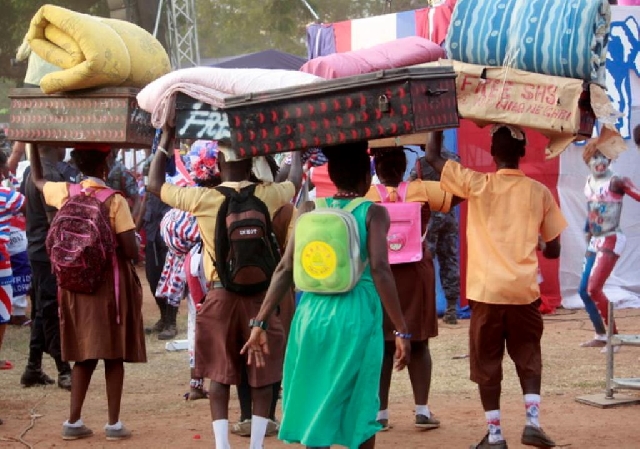Ghanaians supportive of continuing free SHS initiative with 85 per cent backing its extension – Afrobarometer report
 Free SHS
Free SHS
A recent survey has revealed that unemployment is now the primary concern for Ghanaians, with 41 per cent of respondents urging the government to prioritise job creation.
Infrastructure and road development are also critical issues, cited by 38 per cent of Ghanaians, while healthcare remains a pressing need for 33 per cent.
These findings reflect a public demand for targeted improvements in essential services and economic opportunities to alleviate growing hardship nationwide.
Economic pressures have intensified markedly over the past year. A staggering 82 per cent of respondents reported experiencing poverty at some level, with 45 per cent indicating that they face moderate to severe financial strain up significantly from 2017, when only 19 per cent reported similar challenges.
This economic downturn has led to widespread resource shortages, as seven in ten citizens reported going without cash income at least once in the past year.
Essential needs are increasingly difficult to meet, with 54 per cent of respondents struggling to access medical care, 44 per reporting water shortages, another 44 per cent experiencing food shortages, and 42 per cent having trouble securing cooking fuel.
As Ghana moves closer to the 2024 elections, optimism about the country’s economic direction is waning. Less than half (45 per cent) of Ghanaians are hopeful for economic improvements in the coming year, while the government’s economic performance ratings continue to drop amid public dissatisfaction with policies seen as inadequate to address rising living costs and access to basic services.
A new Afrobarometer survey highlights that citizens are not only seeking urgent action on unemployment, infrastructure, and healthcare but are also voicing strong support for key government programmes, with calls to end others.
The survey reveals that Ghanaians are particularly supportive of continuing the Free Senior High School initiative, with 85 per cent backing its extension.
The Planting for Food and Jobs programme enjoys similar popularity at 81 per cent, followed by the One District One Factory initiative (71 per cent) and the One Village One Dam policy (60 per cent).
However, the report also highlights a significant call for policy adjustments, with 79 per cent of respondents opposing the electronic transactions levy (E-levy) and advocating for its discontinuation.
This opposition reflects public dissatisfaction with policies perceived to intensify economic burdens amid already high costs of living.
Source: classfmonline.com
Trending News

GA/R: Tabora landlord arrested for allegedly aiding MoMo and BEC scams
00:04
V/R: 15 arrested after sporadic shooting at Ho central mosque, 7 hospitalised
12:19
GoldBod dismisses claim of losses as “imaginary”
12:00
141 arrested in major cybercrime crackdown targeting MoMo fraud, online scams
10:36
Awutu Senya East MP, MCE engage security agencies to review security situation
10:07
Ghana Medical Trust Fund engages Ghana Health Service, HeFRA on strengthening health system reforms
09:50
Okudzeto-Ablakwa inaugurates smart classrooms to boost STEM education in North Tongu
11:38
Activist Felicity Nelson brings Christmas comfort to Accra Police cells
08:32
First batch of large-scale mining licences to face possible revocation revealed
09:08
A/R: Kumawu MP celebrates Christmas with drivers and Okada riders
07:57




